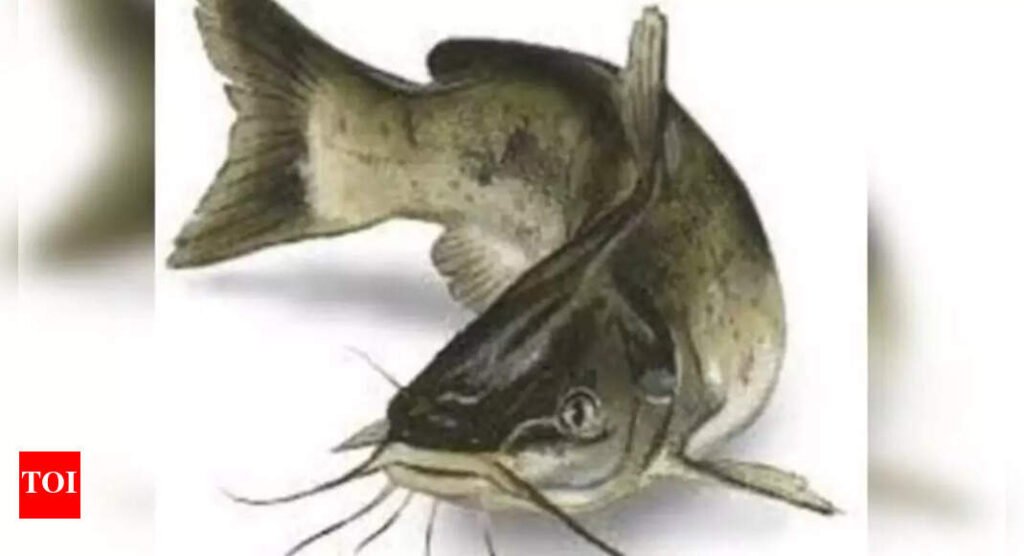In coastal and riverine regions where fish is a dietary staple, often served with rice, selecting safe and sustainable fish is very important. However, while most fish varieties are safe and nutritious, one specific type, Thai Mangur Fish (also known as Thai Catfish) has raised serious health and environmental alarms. Despite a government ban in place since 2000, this fish is still being illegally farmed and sold in many regions of India, putting public health at serious risk. The farming and sale of this fish are banned due to significant health risks and environmental damage, having caused a 70% decline in native fish populations and severely impacting India’s aquatic ecosystem.
About the Thai Mangur fish
Thai Mangur is a hybrid variety of catfish, originally bred for its fast growth and adaptability. It is a foreign species imported from outside India. As a carnivorous species, it endangers other fish in India, severely affecting aquatic habitats. While it gained popularity due to its rapid growth and ease of cultivation, Thai Mangur quickly became a public health and ecological concern. So much so that its farming, sale, and consumption are now legally banned in India.
Why is Thai Mangur fish banned in India?
According to News 18, the Government of India and various regulatory bodies have prohibited Thai Mangur because of its harmful health effects and environmental hazards. The National Green Tribunal (NGT) banned its cultivation as early as 2000, citing the fish’s carnivorous nature and potential to disrupt aquatic ecosystems.A leading voice in fisheries health and safety, the cultivation, sale, and consumption of Thai Mangur fish are not only illegal but also extremely risky to human health. Violators of this ban may face strict legal action under national laws.
Thai Mangur fish causes cancer
Dr Priyanka Arya, Assistant Director of the Aligarh Fisheries Department, warns that consuming Thai Mangur fish may increase the risk of cancer. The fish is often reared under unsanitary conditions and fed on rotten meat mixed with spinach, a practice that contributes to serious water pollution and poses a direct threat to consumers. The fish has been linked to carcinogenic effects, making it one of the most harmful fish banned in India.
A 70% decline in native fish species
Beyond personal health, the Thai Mangur fish has caused significant damage to India’s water ecosystems. Research shows that this invasive species is responsible for a 70 percent decline in native fish species in India. Due to its aggressive, carnivorous feeding habits, the Thai Mangur preys on smaller native fish, disrupting the ecological balance in rivers, lakes, and ponds.Additionally, Thai Mangur often carries parasites such as fish lice, which lead to epizootic outbreaks, sudden outbreaks of disease in aquaculture environments that can wipe out entire fish populations.
Illegal farming practices and water pollution
One of the many reasons why Thai Mangur is dangerous is due to its unsustainable and unhygienic farming practices. Some fish farmers feed these fish with rotting meat waste, often laced with leftover vegetables like spinach, to maximise profit. This not only contaminates the fish but also pollutes the surrounding water bodies, accelerating the destruction of aquatic ecosystems.
Strict ban and penalties on the import of Thai Mangur fish by the government
The ban on Thai Mangur is not just advisory; it is strictly enforced. The government has made it clear that anyone involved in the cultivation, distribution, or consumption of Thai Mangur will be subject to legal penalties. Public agencies, including the Fisheries Department, have been instructed to conduct raids and take appropriate legal action against violators.The Fisheries Department has launched multiple awareness campaigns to educate the public about the dangers of eating Thai Mangur, specifically highlighting its carcinogenic properties and harmful rearing practices.Also read | Is icing your face safe and effective? Know its benefits, risks, and application tips


